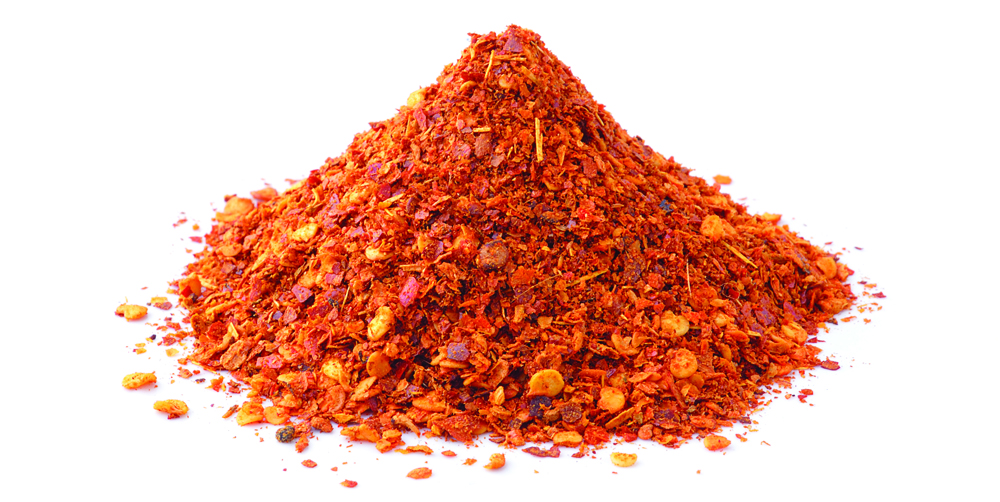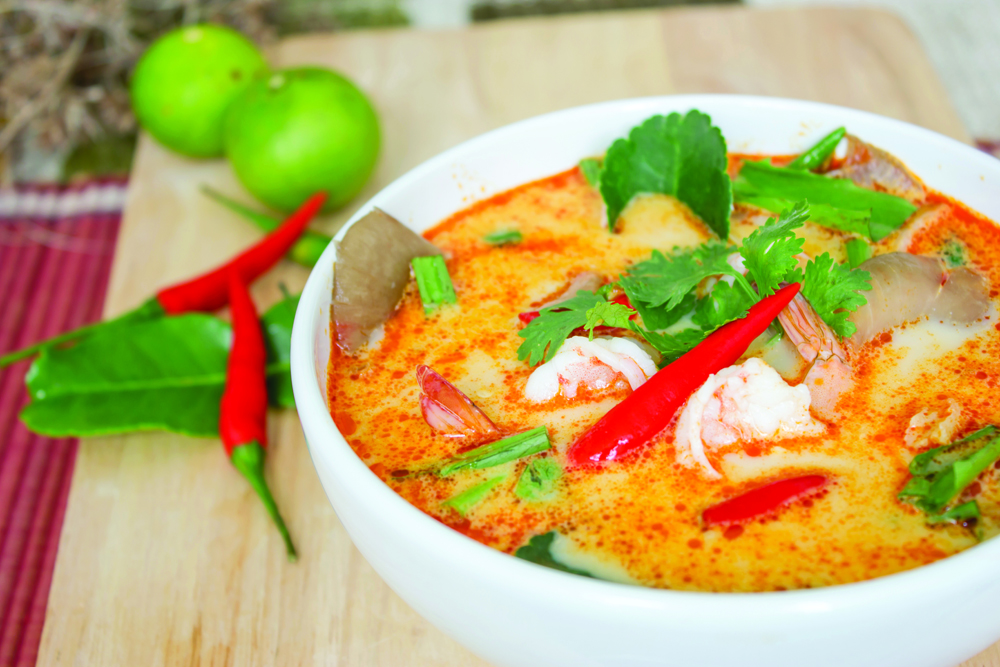
Spices are enjoyed all over the world because they add an incredible amount of flavour to what we eat. Tangy additions help stimulate our palate by turning everyday ingredients into an exciting culinary adventure. However, spicy food fans will be elated to know that in addition to making our taste buds sizzle, they come with various health perks.

Anti-Cancerous Properties
According to the American Association for Cancer Research, regular consumption of capsaicin slows the growth of cancer cells and in some cases, even kills some cancer and leukemic cells. And that is without harming the surrounding cells. This evidence is backed up by the fact that in countries that have diets traditionally high in capsaicin, like India and Mexico, people tend to have lower rates of some cancers. Turmeric is a peppery-flavoured spice native to India and contains the active antioxidant curcumin, and studies have found it may be particularly active in slowing the spread of cancer and growth of tumours. It can be found in curry powder and some mustards.
Additionally, spices play a role in protecting against the potential damage of grilling and barbecuing at high temperatures, which can lead to the formation of heterocyclic amines (hcas), the toxins linked with colorectal, stomach, lung, pancreatic, breast and prostate cancers. A study at Kansas State University found marinating or dry-rubbing beef patties with rosemary cut hcas by 61 to 70 percent and that Thai spice preparation reduced hcas by 40 to 42 percent.
Important spices: Rosemary, turmeric, fingerroot and galangal

Healthy Heart
Studies show that cultures that eat the most piquant foods have much lower incidences of heart attack and stroke. Capsaicin, found in jalapeños, cayenne pepper and red chilli peppers, can reduce the damaging effects of LDL, the bad cholesterol that can clog your arteries. Apparently, LDL resists oxidation for a longer period of time when chillies are added to a diet, thus reducing the heart stroke risk. The medical team at the American Chemical Society also found that capsaicin blocks a gene that narrows the arteries, thus increasing blood flow in the vessels, and it helps reduce the accumulation of cholesterol in the body by increasing its breakdown rate. The capsaicin in peppers also fights inflammation, which has been identified as a risk factor for heart disease.
Important spices: Jalapeño, cayenne and red chilli pepper.

Diet Aid
According to “The New York Times”, eating a spicy dish can temporarily jack up your metabolism by up to eight percent. It can also help the body effectively burn calories faster because when the capsaicinoids, the chemicals in peppers, reach the gut they signal receptors to increase the number and activity of the body’s “brown fat” cells, which increase core temperature and burn calories faster than usual. Researchers at Purdue University also found these chemicals reduce cravings for fatty, salty and sweet foods for people not used to pungent food. Dieting can become easier as well because the extra kick of hot sauce or a chopped jalapeño can make even the blandest diet food more palatable, so you are more likely to stick with your weight loss plan. Plus some Chicken Tandoori is more likely to leave you satiated, helping you eat smaller portions. A Canadian study found a group of men that had an appetiser with hot sauce consumed 200 fewer calories than peers who didn’t have hot sauce.
Even if you eat a high-fat meal, spices can help reduce the damage, according to a study at Pennsylvania State University. When a fatty meal is consumed, triglycerides and insulin levels surge. But the study found when volunteers ate the same chicken dish and bread with some added spices, triglyceride response and insulin decreased by 31 and 21 percent, respectively, as compared to consuming the meal without spices. That’s because the seasonings used, like turmeric and cloves, are particularly high in antioxidants that improve insulin sensitivity.
Important spices: Cayenne, chilli and jalapeño


8 Added Reasons To Eat Fiery Foods
1- Lower Blood Pressure: A stronger cardiovascular system is created when vitamins A and C strengthen the heart muscle walls, and the pepper’s heat increases blood flow throughout the body.
2- Added Nutrition: The addition of fresh chillies to your meals can help you reach your daily recommended intake for vitamins and minerals. According to the USDA National Nutrient Database, green and red peppers have a variety of essential minerals and high levels of vitamin C.
3- Improved digestion: Spices help improve your digestion because they increase the hydrochloric secretion of your stomach. This in turn increases blood flow to the stomach and even increases the mucous lining. Capsaicin also helps kill bacteria like H. Pylori and helps prevent or cure stomach ulcers.
4- Arthritis: Turmeric reduces joint inflammation and bone destruction. The curcumin present in the spice also helps alleviate the pain associated with arthritis.
5- Cold and flu: Capsaicin stimulates sweating and eases the discomfort of cold and flu symptoms. It also helps open up the nasal passages. What’s more, it may reduce sinusitis and other flu symptoms.
6- Improved sleep patterns: According to Australian researchers, people who regularly consumed spicy meals fell asleep more easily. They also woke up easier and had more energy throughout the day.
7- Mood lifters: Chilli peppers increase endorphins and serotonin, which dull pain and give us a feeling of wellbeing. They can fight depression and act as powerful stress relievers.
8- Improved breathing: Due to turmeric’s ability to prevent infection and to suppress a protein called NF-kb, which causes inflammation and mucus in the airways, it can protect lungs from irritants and lead to a lower risk of asthma, chronic bronchitis, laryngitis, emphysema, sinusitis and other lung diseases.

Brain Jolt
Research is still in its initial stages, but spices like rosemary, spearmint and cinnamon could delay the start, or reduce the symptoms of Alzheimer’s disease. In one study, a big quantity of rosemary and spearmint extracts improved memory in mice suffering from old age. It’s believed the antioxidants found in the two spices may reduce stress in the regions of the brain that control memory and learning. Plus it was found that naturally occurring chemicals in cinnamon prevented neural knots similar to those in the brains of Alzheimer’s patients.
















